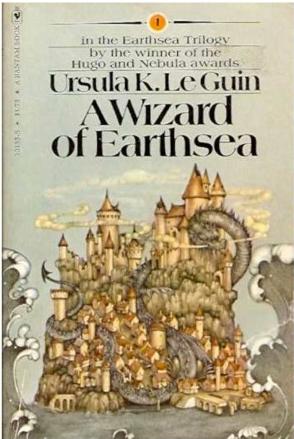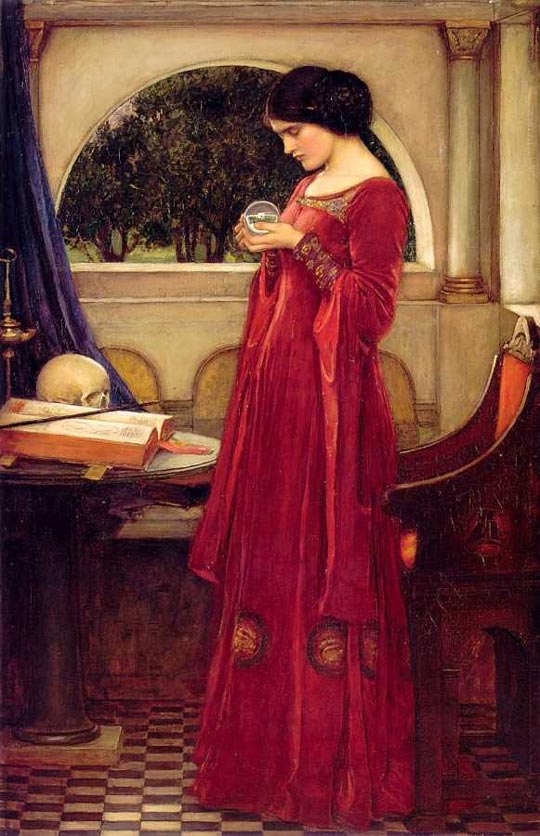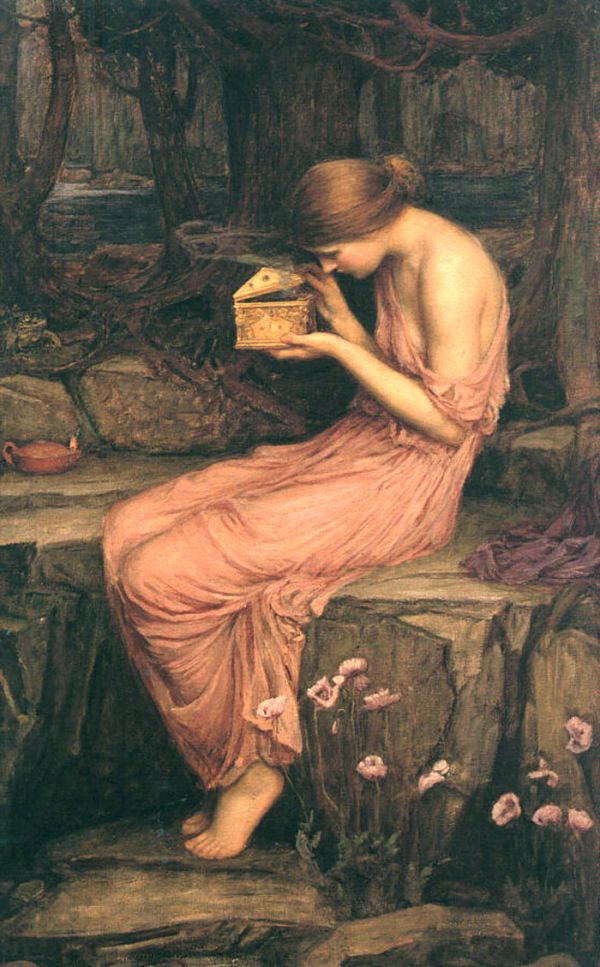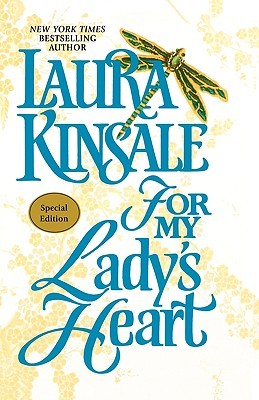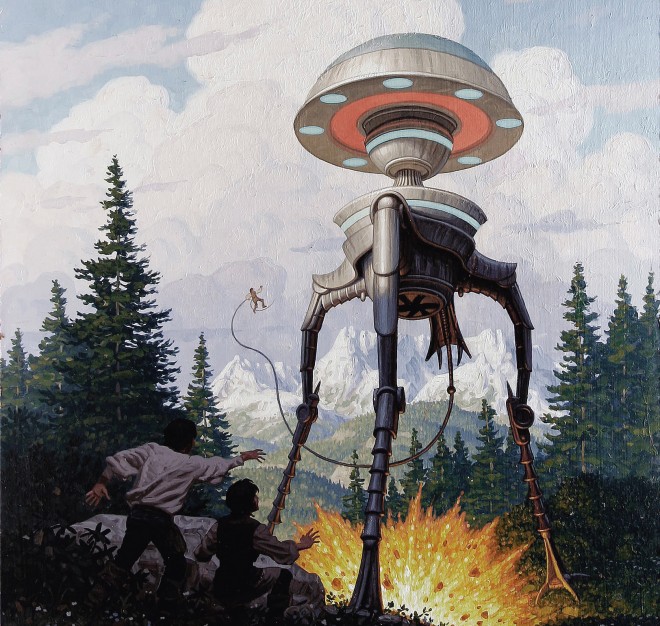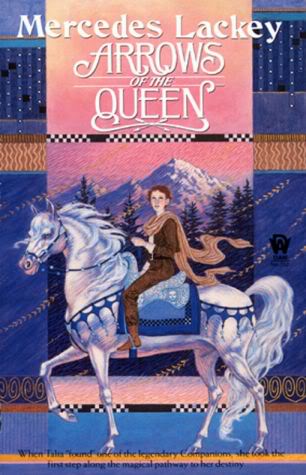“Tell me one last thing,” said Harry. “Is this real? Or has this been happening inside my head?”
“…Of course it is happening inside your head, Harry, but why on earth should that mean that it is not real?”
–Harry Potter and the Deathly Hallows
Writing on the Game of Thrones season three premiere, a reviewer at the New York Times who confessed to being a fan of the science fiction and fantasy genre casually mentioned that upcoming discussions on slavery and women’s liberation were “heavy handed…particularly for a show set in the medieval period.” Twitter reacted swiftly, with Alyssa Rosenberg from Think Progress satirically tweeting, “may the Lord of the Light save me from people who are made uncomfortable by thinking about issues in their entertainment.”
Shunted away, at a private kiddie table and apart from allegedly serious literature, fantasy fans have been jostling for recognition and fending off accusations that their beloved genre is immature, escapist, and unrealistic. High/Epic Fantasy, in particular, has been accused of being regressive, conservative, and reactionary, intent on preserving an ideology of traditional gender scripts and maintaining a cast of lily-white characters. In western culture(s), epic fantasy is thought to describe the British medieval period, albeit with dragons and magic, but a more accurate description would be that post-1960s epic fantasy is influenced heavily by J.R.R Tolkien, whose irritation with industrialization and what he called “the robotic age” are palpable in his idealized version of rural life as represented in the Shire. In an interview with the International Socialism Journal, China Mieville states that:
You…have to remember that many works within that tradition question or undermine its more conservative aspects. However, it is true that the hold of that conservatism is strong in the genre, and it’s also true that that particular post-Tolkien stream is what most people these days mean when they talk about ‘fantasy’.
It would be unfair to point exclusively at Tolkien for his long-lasting influence on epic fantasy when the genre’s heritage has also been influenced by commercial considerations. Between 1969 and 1974, Ballantine re-issued around seventy classic fantasies in their Adult Fantasy series and published a number of significant new authors like Ursula K. Le Guin and Marion Zimmer Bradley. However, none came close to matching the commercial success of The Lord of the Rings.
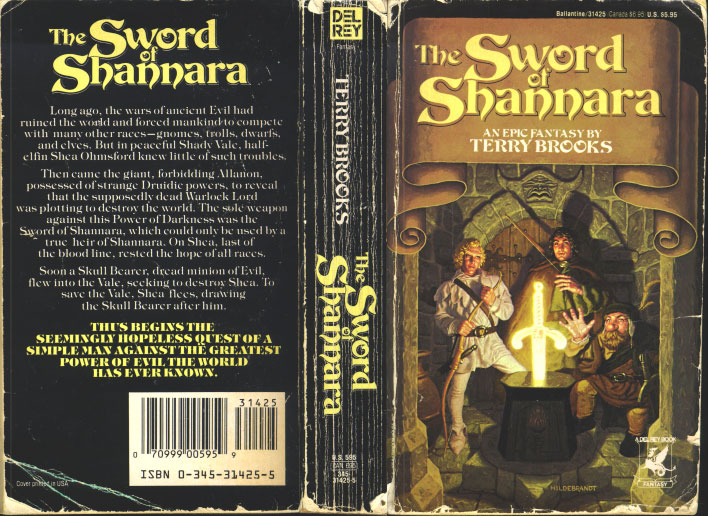
In 1977, new Ballantine editors, Judy-Lynn Del Rey and Lester Del Rey, believed that fantasy fiction could become a real mainstream success if promoted properly. As an experiment, they took two new authors out of their slush pile, Terry Brooks (Sword of Shannara) and Stephen Donaldson (The Chronicles of Thomas Covenant, the Unbeliever) and marketed them explicitly as books for people who liked Lord of the Rings. Both novels were immediate best sellers and set the stage for the fantasy genre’s commercial viability. The long tradition of conservatism in fantasy has partially been the result of commercial constraints—editors know what’ll sell.
Mieville goes on to list a number of traits he associates with conservative ideology, what he also calls “feudalism lite.”
…[I]f there’s a problem with the ruler of the kingdom it’s because he’s a bad king, as opposed to a king. If the peasants are visible, they’re likely to be good simple folk rather than downtrodden wretches (except if it’s a bad kingdom…). Strong men protect curvaceous women. Superheroic protagonists stamp their will on history like characters in Nietzschean wet dreams, but at the same time things are determined by fate rather than social agency. Social threats are pathological, invading from outside rather than being born from within. Morality is absolute, with characters–and often whole races–lining up to fall into pigeonholes with ‘good’ and ‘evil’ written on them.
These labels pose a challenge to engaged writers and readers of the genre who love the epic fantasy tradition but do not necessarily believe in its innate marriage to escapism, and maybe don’t even believe in conservative ideology’s innate attachment to escape either. Mieville, for his part, has all together eschewed the rural setting so prevalent in epic fantasy and has chosen to feature heavily urbanized settings in his writing.
The conservative tradition Mieville describes is, of course, not the same as American-style conservatism and refers to British high toryism (similar to Canadian red toryism), an ideology which accepts the presence of class inequalities and traditional social stratification as long as society elites provide, through charity or government legislation, assistance to the marginalized. Key words: nobless oblige. Critics of High/Red Toryism describe the ideology* as paternalistic, as its justifications for social stratification have historically relied on a mandate from God. If ever you wondered about the rampant use of prophecies in epic fantasy, then consider its link to high toryism: birth is destiny.
Questions of free will aside, these prophecies often form the basis of what Joseph Campbell calls “the hero’s journey.” Hero leaves home, finds magical helper, overcomes trials, receives rewards. (I call this description the “plot coupons” formula, where the reader can cash in these coupons for a feel-good adventure. Hero finds magic cat; Hero finds magic sex; Hero defeats magic villain etc.) Royalty often provide structure to these quests, functioning as characters that recognize the hero’s achievements, set the hero on his or her quest, or punish the villain.
In her doctoral thesis, Kings. What a Good Idea, Pamela Freeman writes that in stories in which a king is the protagonist, we’re likely to see the oft-used “Rightful Heir” or “Missing Heir” trope. See: King Arthur, Aragorn, Harry Potter, Rand from The Wheel of Time, Eragon, and most novels that involve a young boy that leaves his home to embark on an adventure. On one hand lie patriarchal inheritance laws that govern the transmission of inheritance between male blood lines, an issue of justice and fairness that is familiar to most people, despite or because of its problematic gendered connotations. On a more emotional level, there’s hunger to belong and to complete a family, that the truth about one’s blood line and birth status is worth knowing and that without the truth the person will live a suspended life fraught with emotional anxieties. Conservative or not, this plot-line directly confronts our emotional anxieties.
The question then becomes why people living in democratic countries would be interested in reading books about social stratification and monarchy. Pro-monarchists (the real-world kind) usually defend royalty on the basis that monarchs represent all of their citizens and thus provide continuity and identity to a nation, whereas elected officials can only represent their constituents. (For those who say, “but…presidents?” most pro-monarchists live in constitutional monarchies that use a parliamentary system. Prime Ministers aren’t directly elected by the people.)
Freeman states that “tyranny has been replaced with an image of pastoral care, ensuring that today will be like tomorrow, protecting us from political machinations and…extremes of any kind.” She links a distrust of elected officials and desire for continuity with epic fantasy’s focus on “rightful kings.” Writers use kings precisely because they’re traditional, and therefore meaningful. Of course, the common image of a rightful king preserving the collective peace amongst his people is a historical judo-flip unsupported by an even cursory empirical observation but, nevertheless, rightful kings prance around and disseminate compassionate justice in epic fantasies with more regularity than they ever did in history and this has led critics to deride the genre as escapist because it’s not “real.”
But labelling the epic fantasy genre as unserious also stems from the 19th century rise of the modernist tradition that undervalues story and prioritizes style. Traditionally, epic fantasy is told conservatively and is rarely experimental, omitting surprising shifts in time or point of view. This ordered narrative prioritizes story-telling by giving readers access to familiar non-experimental style, which consequently allows them to suspend skepticism (or to even believe, as Tolkien states in his lecture On Fairy Stories) without awkward mental breaks that would shatter the belief of the secondary world. In a much quoted passage, E.M Forster articulates the modernist position on storytelling, calling its relationship to the novel as “the backbone—or may I say tapeworm, for its beginnings and end are arbitrary. It is immensely old—goes back to Neolithic times, perhaps to Paleolithic. Neanderthal man listened to stories, if one may judge the shape of his skull.”
The fantastic’s historical link to oral folk ballads and storytelling is fairly obvious, but this modernist disdain for its oral roots reveals Forster’s elitism: if it’s not difficult to read, then it’s not worth the reader’s time. This position, while also being classicist, neglects oral storytelling’s influence on knowledge. (I wonder about Forster’s position on university lectures.) This elitism hasn’t disappeared from modern publishing. In his famous 2001 essay titled The Reader’s Manifesto, B.R. Meyers writes that fast-paced stories written in un-affected prose may be deemed “an excellent read” or a “page-turner,” but “never literature with a capital L.”
The modernist backlash comes on the heels of the Victorian period’s Arthurian resurgence, a shift created by popular writers like Walter Scott, Alfred Tennyson, and William Morris. Tolkien was especially keen on Morris’ romances, stating that “other stories have only scenery; his have geography.” We have Morris to thank (and not sarcastically!) for the creation of Tolkien’s maps, revolutionary at the time of their publication and now staples in nearly every epic fantasy novel. It bears noting that even during their lifetimes, authors like Walter Scott were accused of prettifying history and creating a market for nostalgia. Mark Twain wrote A Connecticut Yankee in King Arthur’s Court as a reaction to Scott’s writing. Twain writes:
Then comes Sir Walter Scott with his enchantments, and by his single might checks this wave of progress, and even turns it back; sets the world in love with dreams and phantoms; with decayed and swinish forms of religion; with decayed and degraded systems of government; with the sillinesses and emptinesses, sham grandeurs, sham gauds, and sham chivalries of a brainless and worthless long-vanished society. He did measureless harm; more real and lasting harm, perhaps, than any other individual that ever wrote.
I hear protests in the background. “But what about Ursula K Le Guin? What about the Hugo Awards, whose organizers have been keen to diversify the fantasy genre?” That’s exactly it—there’s nothing innate about epic fantasy that requires its marriage to conservative philosophy. (And even Mieville doesn’t believe Tolkien’s influence has been totally negative.) In fact, fantasy is uniquely positioned to play with radical ideas.
Radical, of course, is not the same thing as realistic. In reaction, or perhaps in retaliation, to critics who accuse fantasy of being unrealistic, a sub-genre of fantasy called “grimdark” has emerged featuring grittier and darker storylines. Joe Abercombie, arguably the posterboy of grimdark fantasy, writes “[p]ortraying your fantasy world in a way that’s like our world? That’s only honesty.” Even fantasy that is not officially “grimdark” bears traces of the shift from shiny and clean to gritty and dirty. However, writing recently on the movie Lincoln, Aaron Bady ushers in a glorious takedown of those who equate grittiness with reality.
First and foremost, it uses a realist aesthetic to make it seem like compromising cynicism is realistic. Form becomes content: it shows us the world as it “really” is by adding in the grit and grain and grime that demonstrate that the image has not been airbrushed, cleaned up, or glossed over, and this artificial lack of artifice signifies as reality…They don’t mean “accuracy,” because that’s not something most people could judge; they mean un-glamorized, un-romanticized, dark…
But, of course, we’re not. We’re just seeing a movie whose claim to objective accuracy is no less artificial than the filters by which an instagram takes on the nostalgic glow of a past that was never as overexposed and warm as it has become in retrospect. And when we take “gritty” for “realism,” another kind of “realism” gets quietly implied and imposed: the capitalist realism by which ideals become impossible and the only way things can get done is through compromise and strategic surrender. Anti-romanticism is all the more ideological because it pretends to have no ideology, to be the “plain truth” that demonstrates the falsity of romantic visions.
Whether a story is romantic or gritty is hardly a measure of reality or progress—Game of Thrones is very conservative despite its grittiness, after all. In either case, I’m not sure when novelists started conflating “realistic” with “relevant” or “truthful.” Employing a realistic aesthetic is not something fantasy should necessarily aspire to be, nor does a realistic aesthetic make a novel meaningful. Regardless of literary tradition, most writers are dedicated to sincerely lying. Particularly useful to this discussion is Le Guin’s introduction to The Left Hand of Darkness where she argues that writers “go about it [telling the truth] in a peculiar and devious way…and telling about these fictions in detail and at length…and then when they are done writing down this pack of lies, they say, There! That’s the truth!” Generic literary novels also play with the truth, and arguments that literary novels are “realistic,” as though they are not bound by ideological constraints and a particular worldview, are fairly humorous. Epic fantasy is a massive meaningful lie/truth.
In Fantasy: The Literature of Subversion, Rosemary Jackson describes fantasy as a “literature of desire” which works to undermine cultural constraints, as a subversive manifestation of the forbidden and taboo, and as an act of imagination that undermines the world. Jackson, of course, also believes that, of all things, The Lord of the Rings is a failed fantasy because it’s sentimental and nostalgic and would rather define the book as a faery romance. However, putting aside the obsession with trying to define epic fantasy (for some academics will insist that there are differences between “high” and “epic” fantasy, while others will tell you that there’s no difference between fantasy and science fiction—drowning in a quagmire is not on my bucket list), Jackson rightfully points out the awesome potential of fantasy to play with the unacceptable.
Tolkien, for his part, argued that fantasy recognizes reality, but didn’t need to be confined by it. “For creative fantasy is founded upon the hard recognition that things are so in the world as it appears under the sun; on a recognition of fact, but not a slavery to it.” Even in conservative-minded fantasies, the opportunity to subvert expectations exists. That’s why, to return to our intrepid NYT reviewer, homogenizing the medieval period as entirely regressive and unconcerned with moral questions is unhelpful and inaccurate.
Chronology is not an indicator of progress. The term medieval is pejorative, often used as a synonym for unenlightened (for what came afterwards?) and anti-intellectual, even though the period’s philosophical contributions still affect us today. If we want to talk about “realistic” warfare, then how can we ignore Thomas Aquinas and St. Augustine’s contributions to Just War Theory? Today, we see so-called history used as a slight of hand to give books a carte blanche against criticism. “That’s just how it was back then,” a period defined as anything pre-1950s if judged by fan conversations on the interwebz. Unfortunately, these excuses homogenize history and ignore its radical and not-so-radical thinkers who would protest at, say, the harshness of contemporary life. Who could forget Thomas More’s Utopia, the Renaissance book that birthed the utopian and dystopian novel, subgenres dedicated to undermining the status-quo but, according to the it’s-only-entertainment brigade, born in a period with allegedly unquestionable moral absolutes that cannot be addressed in entertainment. More’s Utopia bends, challenges, and re-imagines the realities of his day more honestly than many fictions claiming objectivity. While most wouldn’t classify Utopia as an epic fantasy work, the point still applies: many imitations of historical time periods aren’t realistic even when they claim to be, but even if they were, what does that have to do with meaning? Literature must do more than imitate.
These subversions also occur in the Arthurian canon, the prototypical conservative epic fantasy. When BBC’s Merlin hired Angel Coulby, a mixed-race actor, to play Guinevere, the fan reaction was divided by those who argued that a black Guinevere couldn’t exist in the medieval period, that her presence was anachronistic, and those who believed that the mere act of casting Coulby was revolutionary. It’s saddening that a medieval text is potentially more progressive than some modern fans who shout down calls for diverse representation. Two Moorish knights were members of the Round Table and, lest we forget, the Green Knight was actually green skinned in early versions of the tale. But here again, we have an erroneous view of the medieval period as disconnected from the rest of the world. Here again we see people use the term “reality” to claim that an idea is objective when it’s actually ideological.
Despite its conservative nature and the fact that it happened “back in the day,” the Arthurian cannon isn’t silent on gender roles either. In 1911, Silence was discovered in England, a 13th century epic poem that forms part of the Arthurian canon and was originally written in French. The main protagonist is Silence, a girl who is raised as a boy due to King Eben’s declaration that women cannot inherit property. Nature and Nurture are personified in the poem, and take turns debating whether gender is either innate or socialized. Can Silence successfully become a man? Though Silence contains a number of problematic elements, the fact that epic fantasy was discussing gender in the 13th century should be enough evidence to dispel the myth that epic fantasy is escapist and unconcerned with the human condition simply because it does not follow our world’s physical laws.
Furthermore, despite commercial tendencies to sideline characters of colour and systemic authorial failures to incorporate people of colour in their work, Gregory Rutledge, writing specifically on African-American literature but also on themes that can be extended to other minority groups, states that the fantastic tradition is perfectly situated to discussing themes of otherness. “Otherness and the otherworld phenomenon of both fantasy and futurist fiction is something with which many persons of African descent may identify. Relegated early to the position of the exotic Other, Africans and their descendants have been marked as primitive for centuries.”
He goes on to relay that while Samuel Delaney could be considered the first self-described African-American speculative fiction author (Delaney eschews the term “fantasy”—but we’re not going there), elements of fantasy nevertheless manifest themselves in African-American literature before Delaney’s debut and even make an appearance in Frederick Douglass’ autobiography. After Douglass was whipped for the first time, he received a root from a fellow slave to evoke spirits to ward off further whippings. Though Douglass unequivocally states that this act was superstitious nonsense, he also admits that no one whipped him ever again. Here we have an example of the fantastic being evoked in discussions of physical freedom, maybe ambivalently by Douglass but with certainty by the fellow slave who offered him the root. Escapist? To paraphrase Terry Prachett, jailers hate escapism.
Even the most formulaic epic fantasy novel plays with the author’s desire, and it is therefore chained by human emotion to the so-called real world–and so it becomes an acceptable target of social criticism or praise. Criticisms targeting epic fantasy’s relevance to the human condition are uncharitable and as the genre gains more traction on television networks, new and old fans are deflecting criticisms of their most entertaining shows by borrowing the old elitist line that fantasy is irrelevant and thus immune from rigorous analysis. We’ve been rather unfair to a genre that can shape reality to its will. Creators do not escape from reality, but bend it to suit a particular idea or agenda and that, for me anyway, has always been the lure of epic fantasy.
*I do not use “ideology” as an insult. Everyone operates through ideology, on both left and right.
About the Author: Sarah is still waiting for her six-figure advance. In the meantime, she acts as a guest lecturer at Chernivtsi National University (that’s in Ukraine) in Canadian Politics. She’ll soon return to Canada –where winter is ALWAYS coming— to begin her PhD at McMaster University. You can follow her on twitter @sarahshoker.

